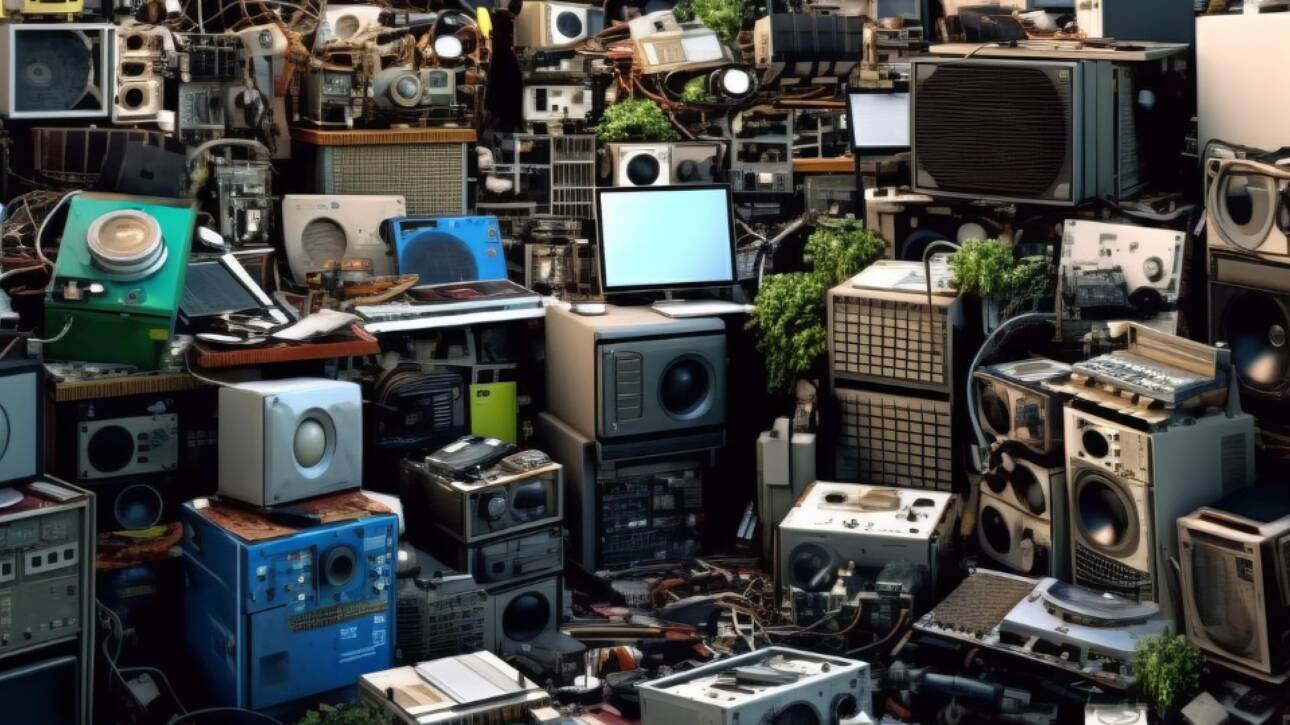QThe world of waste management is on the cusp of a transformative era, particularly in electronic waste (e-waste). With technological advancements surging, the generation of e-waste has skyrocketed, posing significant environmental and health challenges. This calls for a revolutionary approach to e-waste management, a rapidly evolving field, to meet these challenges head-on.
- The surge in electronic devices has led to an unprecedented increase in e-waste.
- Traditional waste management methods need to be improved for this new challenge.
- E-waste contains valuable materials that can be recovered and reused.
- The environmental impact of improper e-waste disposal is profound.
- Innovative e-waste management strategies are emerging globally.
- These strategies focus on sustainable recovery and recycling of resources.
- With its vast population and rapid technological adoption, India faces unique e-waste challenges.
E-Waste Management in India: A Growing Concern
As one of the world’s fastest-growing economies, India is experiencing a rapid increase in e-waste generation. The country’s burgeoning consumer electronics market and a thriving IT and telecommunication sector have significantly contributed to this rise. Effective e-waste management in India is an environmental imperative and a resource recovery opportunity.
- India generates approximately 2 million tonnes of e-waste annually.
- The majority of this waste is not recycled and ends up in landfills.
- E-waste contains hazardous substances like lead, mercury, and cadmium.
- Improper disposal leads to soil and water contamination.
- India has a growing awareness and regulatory push for better e-waste management.
- The formal e-waste recycling sector is still in its nascent stages.
- Informal recycling practices, though widespread, pose health and environmental risks.
Innovative Practices in E-Waste Recycling
The e-waste recycling landscape is witnessing a paradigm shift, with innovative practices being adopted to enhance resource recovery and minimize environmental harm. These practices are pivotal in transforming e-waste from a challenge to an opportunity.
- Advanced separation technologies enable the recovery of valuable materials from e-waste.
- These technologies include mechanical shredding and chemical processing.
- Recycling e-waste conserves natural resources and reduces greenhouse gas emissions.
- Innovative business models are emerging, focusing on the circular economy.
- Public-private partnerships are essential for effective e-waste management.
- Education and awareness campaigns play a key role in promoting recycling.
- India’s adaptation of these global practices is crucial for its e-waste management success.
According to a report by the Associated Chambers of Commerce and Industry of India (ASSOCHAM), India is among the top five e-waste-generating countries globally, with an annual e-waste production of around 2 million tonnes.
E-Waste and the Circular Economy
The concept of a circular economy is increasingly relevant in e-waste management. This approach focuses on regenerating products and materials, minimizing waste and maximizing resource efficiency.
- The circular economy model challenges the traditional ‘take-make-dispose’ approach.
- It emphasizes the reuse, refurbishment, and recycling of electronic products.
- This model ensures a closed-loop system, reducing the reliance on raw materials.
- It promotes sustainable product design, reducing future e-waste generation.
- Policy frameworks supporting the circular economy are essential.
- Consumer awareness and participation are critical for the model’s success.
- India’s adoption of the circular economy principles is vital for sustainable growth.

Role of Technology in E-Waste Management
Technology plays a pivotal role in enhancing e-waste management practices. Technology-driven solutions offer efficient and sustainable ways to handle e-waste, from collection to recycling.
- Innovative collection systems improve e-waste gathering efficiency.
- Advanced recycling technologies ensure maximum resource recovery.
- Data analytics and AI can optimize recycling processes and supply chains.
- Blockchain technology enhances transparency in the recycling process.
- These technologies can help track the lifecycle of electronic products.
- India’s investment in such technologies is crucial for effective e-waste management.
- Collaboration with global tech leaders can accelerate India’s progress in this field.
Role of Technology in E-Waste Management
In the landscape of e-waste management, Endeavor Recyclers stands as a beacon of innovation and sustainability. Aligned with the circular economy principles, our approach to e-waste management goes beyond mere recycling. We are committed to pioneering solutions that address the e-waste challenge and contribute positively to the environment and society.
- Endeavor Recyclers focuses on advanced and sustainable e-waste recycling practices.
- Our operations are grounded in integrity, innovation, and environmental stewardship.
- We are dedicated to resource recovery and minimizing environmental impact.
- Our approach includes collaboration with stakeholders across the value chain.
- We aim to drive awareness and promote responsible e-waste disposal.
- Endeavor Recyclers is committed to contributing to a greener, more sustainable India.
References :
- Associated Chambers of Commerce and Industry of India (ASSOCHAM) Report on E-Waste Management.



